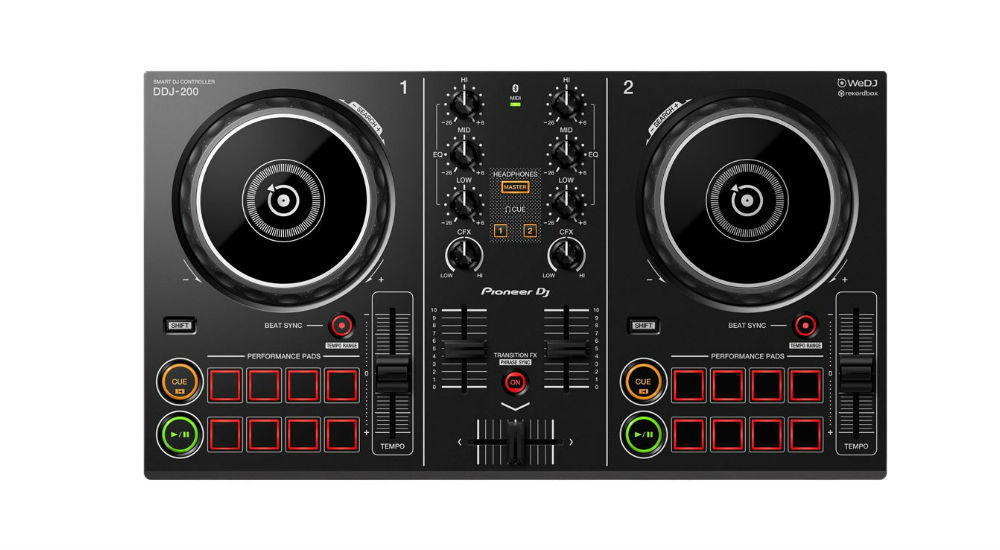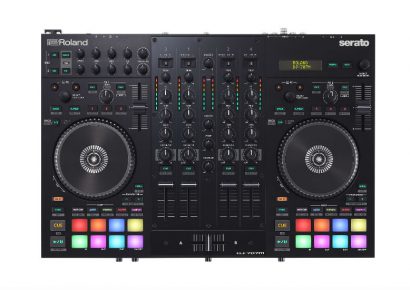With streaming music taking over digital downloads and physical music purchases as the preferred way to consume media, this controller is Pioneer’s solution for DJ’s. Boasting connectivity with iTunes, Spotify, Deezer, Beatport Link and SoundCloud Go through apps such as Djay, WeDJ, Edjing and Rekordbox, the DDJ-200 offers vast options to access millions of tracks not only listen to but DJ with.
Out of the box, the device is plug and play with the software of your choice. Pioneer have removed all connectors from the DDJ-200 bar the USB port. The native software, WeDJ & Rekordbox, utilises the provided mono split cable that connects to the headphone jack of your computer/phone. There are two outputs, one for the main out and the other for the headphone cue. This innovative use of the headphone jack allows for quick setup and compatibility with the speaker system of your choosing.
On first impressions, the controller is quite sturdy. The jog wheels are small but responsive, the up faders are a little rigid but definitely usable and the crossfader is relatively smooth. All the buttons feel good to the touch and the EQ knobs are solid. My only gripe is that the tempo sliders are quite difficult to use. I tended to use the beat sync function to match the tempo and then turn it off to mix.
In stripping down, Pioneer has removed the trim knobs from this controller, providing auto-gain within software. During testing, mixing between heavily compressed house tracks and soft 60’s soul music was seamless. As this controller is geared towards newcomers, the removal of this feature will likely have little to no impact on their experience.
Within a few minutes of messing around with the settings in Rekordbox, the DDJ-200 was working in a way that I’m used to playing on the more expensive pieces of Pioneer equipment. Headphone cue and master levels are controlled via software which can be a pain in some instances, but I found once mixing, the absence of these knobs was completely out of mind, especially with the auto-gain feature.
Using the WeDJ app on Android or iPhone, the DDJ-200 connects via Bluetooth and powered via the USB port. During testing the controller could be powered with a portable charger, making it suitable for DJing on the go. The delay while using Bluetooth was significant and I found beat syncing tracks was the only way to achieve a consistent mix. For those just getting started, it’s suitable, especially those mixing dance music but I can’t imagine mixing unquantized tracks over Bluetooth.
For newcomers, using the DDJ-200 with Beatport link is definitely the selling point here. For $20 a month, you can stream the entire Beatport catalog of 6 million tracks directly to WeDJ/Rekordbox. Integration on Rekordbox was better than expected with approximately 4 second delay to start playing a track and around 10-15 seconds for the track to fully download and analyse. While the audio quality at this price point is quite low, 128kbps AAC, for having a mix at home or at a party it’s a perfect solution for the budding DJ.
Overall the Pioneer DDJ-200 is a welcome addition to a line of market dominating products aimed at the up and coming DJ, and at this pricepoint, it’s easily the best value for money entry level controller currently on the market.

